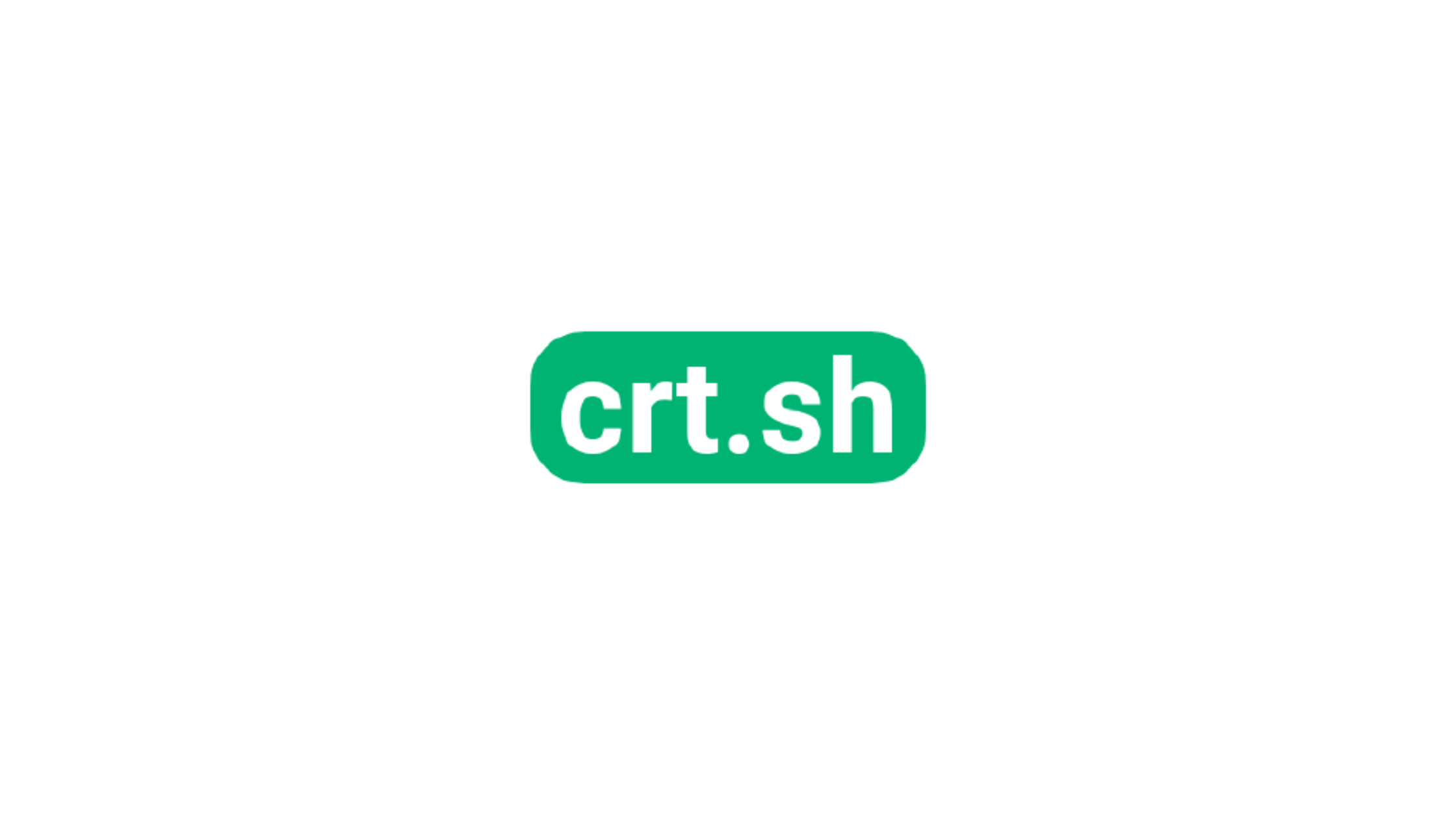Table of Contents
CRT sh
Free
CRT.sh is a web-based tool created by Comodo Security Solutions that aggregates data from various Certificate Transparency (CT) logs. These logs, mandated by major browsers like Google Chrome, record all publicly trusted SSL/TLS certificates issued by participating CAs. CRT.sh indexes this data, providing a user-friendly search interface to discover certificates associated with specific domains, organizations, or other criteria. Think of it as a specialized search engine focused exclusively on SSL/TLS certificate information. It's a free and invaluable resource for anyone involved in web security, brand protection, or certificate management. By providing easy access to CT log data, CRT.sh increases the overall transparency and accountability of the SSL/TLS certificate ecosystem.
Key Features
Certificate Search: Search for certificates by domain name, issuer, SHA-256 fingerprint, or crt.sh ID.
Subdomain Enumeration: Discover subdomains associated with a domain by searching for certificates issued to those subdomains.
Detailed Certificate Information: View comprehensive details about each certificate, including issuer, subject, validity period, and Subject Alternative Names (SANs).
Certificate Chain Visualization: Often, certificates are part of a chain of trust. CRT.sh helps visualize this chain.
User-Friendly Interface: Simple and intuitive web interface that's easy to navigate.
Publicly Accessible: No registration or authentication is required to use CRT.sh.
API access via bash scripts: Automate common crt.sh searches via pre-built bash scripts
Use Cases or Applications
CRT.sh has various applications for security professionals and domain owners:
Brand Monitoring: Companies can use CRT.sh to detect unauthorized certificates issued for their domain names, potentially indicating phishing attacks or other malicious activities.
Security Auditing: Security researchers can use CRT.sh to monitor Certificate Authority behavior and identify potential mis-issuance or vulnerabilities in the certificate issuance process.
Incident Response: During security incidents, CRT.sh can help quickly identify certificates associated with compromised domains or systems.
Subdomain Discovery: Security professionals can use CRT.sh to find subdomains that may not be publicly listed, expanding the attack surface for penetration testing or vulnerability assessments. Learn more about subdomain discovery.
Certificate Management: Domain owners can use CRT.sh to track the certificates issued for their domains, ensuring that they are properly configured and managed.
Compliance Monitoring: Some regulations require organizations to monitor certificate issuance. CRT.sh provides a means to fulfill those requirements. You can visit the CRT.sh website to learn more.
What is Unique About CRT.sh?
CRT.sh's strength lies in its simplicity and focus. While other tools provide certificate information, CRT.sh is specifically designed as a search engine for CT logs, making it exceptionally efficient for finding certificates associated with specific domains or other criteria. Its public accessibility and user-friendly interface further contribute to its widespread adoption among security professionals. Furthermore, the maintainers are committed to improving the site based on user feedback, and the bash scripts facilitate automation of common tasks. Compared to directly querying CT logs, CRT.sh offers a convenient and efficient alternative. Learn more about Certificate Transparency. You can also use crt.sh to identify domains. The tool is useful for penetration testing.
Who Should Use CRT.sh?
Security Researchers: Conducting vulnerability assessments and penetration testing.
System Administrators: Managing and monitoring SSL/TLS certificates.
Domain Owners: Protecting their brand and detecting unauthorized certificate issuance.
Incident Responders: Investigating security incidents involving SSL/TLS certificates.
Bug Bounty Hunters: Finding subdomains and potential vulnerabilities.
Compliance Officers: Monitoring certificate issuance for regulatory compliance. Many resources online offer a guide to CRT.sh.
Supported Platforms & Installation (How to Get the CRT.sh?)
CRT.sh is a web-based tool, so it is accessible from any platform with a web browser. There is no software to install. Simply visit the CRT.sh website. However, you can install the shell scripts to take advantage of the API.
To install the bash scripts, follow these steps:
Clone the GitHub repository:
git clone https://github.com/az7rb/crt.sh.git && cd crt.sh/Make the scripts executable:
chmod +x crt.sh crt_v2.shThese scripts require curl to be installed. To use with httpx, you will need to have go installed and run the command
go install -v github.com/projectdiscovery/httpx/cmd/httpx@latestPricing
CRT.sh is a free service provided by Comodo Security Solutions. There are no fees to use the website or the API. You can read about Comodo Launches new digital certificate searchable web site.
Short Summary
CRT.sh is a powerful and free tool for searching Certificate Transparency logs. Its user-friendly interface, comprehensive features, and public accessibility make it an invaluable resource for security professionals, domain owners, and anyone involved in web security. Whether you're monitoring your brand, investigating security incidents, or simply managing your SSL/TLS certificates, CRT.sh can help you stay informed and secure. The readily available API via bash scripts also enables users to automate and incorporate CRT.sh into other security workflows. Because CRT.sh depends on the data available at the CT logs, delays are sometimes inevitable.
Found this tool interesting? Keep visiting thesecmaster.com, and our social media page on Facebook, LinkedIn, Twitter, Telegram, Tumblr, Medium, and Instagram, and subscribe to explore more useful tools like this.
CRT sh
Free
April 11, 2025
